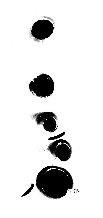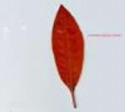
cajid 003cd
TRANSIT
lawrence english
On Transit, Lawrence English surveys a variety of radically different sonic environments and sets them against a rich array of textured electronics. Pulling together abstracted fragments from these settings, he creates an impressionistic sound portrait of his movement across Australia, Japan and the UK.
Not content with representing the overt sounds of these environments, English seeks out less apparent sound elements, such as a moment of rare quiet amidst Tokyo's Shinagawa district, movement of snow underfoot in the Scottish border country, and the deafening tones of Australia's cicada, he invites listeners to create their own narrative.
Featuring audio contributions from: John Chantler, Mike Cooper, DJ Olive, Ben Frost, Cat Hope, Tam Patton, Gail Priest, Heinz Riegler, Robin Rimbaud and Philip Samartzis.
LISTEN
That was a lucky one (excerpt)
mp3 1:12min 850k
REVIEWS
Also look at label profile: OFF THE SPINE – cajid media in e|i magazine issue 8, which looks at our first 5 releases
Feardrop #12, Summer 2005
Troisième (et de loin la plus intéresante) production du label australien Cajid media, Transit est un passage subtil entre la brume et la chant. Le lyrisme de l’insaisissable, le mirage comme lieu d’émission, voilà qui resemble estrangement à un appel de sirène (jusqu’à une voix féminine qui y fredonne sur quelques instants), à un piège pour le voyageur, à une perte par la lumière et le son. Les deux sont ici distribués sans surenchère, plutôt doucement exsudés. Le voyage arrêté, le voyageur est en transit, sans doute perdu, peut-
Diffusion (Sonic Arts Netwok)
Justin Hardison
Cajid Media’s third release is Transit by Brisbane based sound artist Lawrence English and features contributions from DJ Olive, Ben Frost, Cat Hope, Robin Rimbaud, Mike Cooper, Philip Samartzis and more. Despite the large list of guests on the album, you wouldn't know any of them had a hand in the work. The moody combination of field recordings, ominous drones, electronics and events seem to pass before you and at times you may forget that a human is responsible for manipulating what you're hearing. I couldn't pick out the guitar, bass or turntables featured but instead heard the manipulated field recordings from Vietnam, Tasmania and Thailand as well as lush rainforests, crackly announcements over loudspeakers, spiralling drones, passing birds, sine waves, sirens and what could be described as ghosts hauling furniture across the upstairs floors.
Over the course of seven tracks, Lawrence English uses Ableton Live to piece together all of the manipulated sound work and contributions and creates more of a headphone environment to experience then simply a track to listen to but after a few listens you begin to pick out things like Gail Priest's haunting vocal contribution or the sound of processed rumbling traffic. You'll also notice sounds that seem to disappear and reappear later on other tracks. I was previously unfamiliar with the work of Lawrence English but Transit has definitely tweaked my interest.
Paris Transatlantic
DW, June 2005
This third release on Cajid is the richest and most rewarding to date, featuring seven evocative and superbly crafted soundscapes by Lawrence English (who's usually based in Brisbane Australia, though I read this was recorded in Tokyo and England between 2002 and 2003), using "audio tools" supplied by Mike Cooper (guitar and voice), DJ Olive (turntables), Cat Hope (bass), Tam Patton (keyboards), Gail Priest (voice), Heinz Riegler (guitar), Robin "Scanner" Rimbaud (electronics) and field recordings from Thailand, Vietnam and Tasmania provided by, respectively, John Chantler, Ben Frost and Philip Samartzis. If I might be permitted the luxury of quoting from one of my own reviews (of Keith Berry's The Ear That Was Sold To A Fish), much recent electronic music, "as if ironically commenting on the size of the machine that produced it, a laptop about as large and heavy as a folded Sunday newspaper [..] has explored vast reverberant space." If Jérôme Noetinger ever gets round to reactivating his Metamkine Cinema For The Ear series, Lawrence English should be high on his list of potential contributors; I remember an old track by Opik on a long out-
REALTIME (Earbash)
Jonathan Marshall
Cajid Media's 2 most recent releases could not be more dissimilar. Bruce Mowson's Static Tones constitutes a dry and unrelenting exploration of the aural perceptual effects created by throbbing, pulsing blocks of rather difficult sound. Lawrence English's Transit however is a seductive, beautiful suite which melds field recordings with airy, epic organ effects, gentle musique concrete atmospheres, and dramatic, punctilious aural flourishes.
English's 7 track set was inspired by the concept of travel and aural specificity, its sources moving from Thailand to Tasmania, the urban fringes of Japan, Northern England and Vietnam. While these samples broadly evoke the concept of place, English lifts these discrete elements out of their original context and mixes them so that no specific sites or aural landscapes are directly evoked. The effect suggests a sense of gradual change or horizontal movement from one environment to another (mostly from track to track), coupled with a strong impression of how these once site-
The manipulation of the depth of field makes up one of the primary organizing principles of English's composition. Smaller sounds with a sharper attack and decay, such as plucked strings, tapped tubes, lightly-
AVERSIONONLINE.COM
This is my first exposure to the work of Australian artist Lawrence English, and what an exceptional piece of work it is. I was immediately impressed by the beautiful ambience of minimal opener "Oceanic Drift", but that's just scratching the surface of the general palette of the disc. On this particular CD, English is joined by a number of other contributors -
Running time -
[Notable tracks: Oceanic Drift, Dual Process, Winter Sun]
The Wire
Jim Haynes, Outer Limits, March 2005
"A digital radiance binds, envelops and abstracts all the sounds found on Transit from the Australian sound artist Lawrence English. Considering that his source material comes from Robin Rimbaud, DJ Olive, Philip Samartzis and a whole host of other contributors, English's ability to galvanise everything into a cohesive composition is a necessity -
Stylus
Bryan Berge
The digital clock gives off a sickly green light. You turn over in your half-
How different this strange sleepy night world is from the one you encounter wide-
Interpretations of reality are always acts of imagination, but normally they follow principles of reason that, if limited, are familiar and comprehensible. But on the verge of sleep, the mind loses its grip on familiar structures, and the logic of dreams seeps into real life. Think of the bizarre history of nocturnal hallucinations. The boundary between waking life and unconsciousness is the prime space for the mixture of fantasy and reality, mysticism and lucidity.
Lawrence English’s Transit is a sonic portrait of this process. Mr. English captures the simple sounds of life—insect buzzes, bird chirps, passing cars, alarms, and incidental vocal snippets—but with the help of a posse of like-
Opener “Oceanic Drift” layers deep and oceanic drones over Mike Cooper’s voice and guitar, which sound distantly as if they drifting in from a far off room to die at the foot of Mr. English’s bed. A haunting wind whispers through the track and crackles of electronic manipulation blister the surface of the solid drones. The track defines Mr. English’s aesthetic; much of the album is superficially similar—somber and grand, with a sense of dark mystery. Luckily his sound is so rich and complex that it truly is an aesthetic rather than stylistic water-
Despite this over-
Mr. English turns a dreamer’s ear to the real world. Listen to this album as you stare out the window and watch as the cars take flight. Listen to this as you fall asleep and feel your mind melt. Search for the magic hidden beneath our common defenses against an overwhelming reality.

